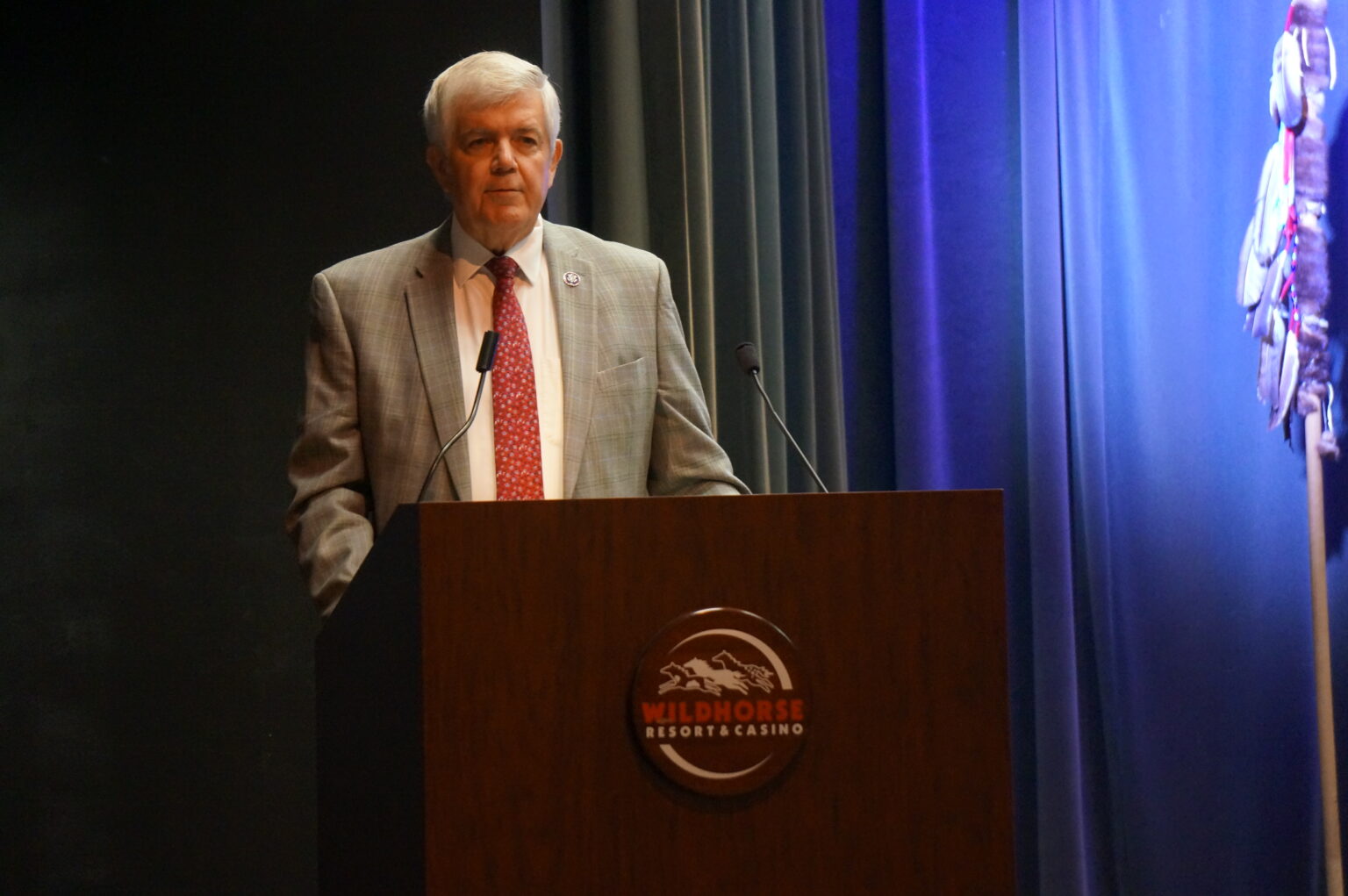EDITORIAL: Council should consider relief on safety fee
Published 12:00 pm Friday, October 27, 2023
The new Baker City Council had a productive first meeting on Tuesday, Oct. 24. The four councilors made a couple sensible decisions — appointing Randy Daugherty as mayor and Loran Joseph to fill one of the three remaining vacancies.
Trending
The council needs someone to oversee meetings, one of the few tasks the city charter assigns to the mayor.
Daugherty, as both a former councilor and a longtime chairman of the city’s budget board, has ample experience.
Joseph is also a former councilor and mayor. Moreover, by appointing a fifth member, the council will still have a quorum, which is necessary to conduct business, even if one member is absent. The charter also requires at least five councilors to approve the hiring (or firing) of any city employee while the city, as it does now, employs an interim city manager. The city has several vacancies — in the public works, police, fire and finance departments — so the five councilors might need to approve hirings proposed by interim city manager Jon France.
Trending
The council will accept applications for the two remaining vacancies through Nov. 10. Ideally, the council will return to its full complement of seven members during the Nov. 14 meeting.
Councilors were also wise not to make any immediate decisions Tuesday on important matters, notably the public safety fee that took effect Oct. 1.
That fee — $15 per month added to residential water-sewer accounts and $50 for commercial accounts — will raise an estimated $1 million annually. The resolution imposing the fee requires that the city use the money for the police and fire departments only. The fee will end after five years unless the council decides otherwise.
Councilor Doni Bruland asked Tuesday whether the city could temporarily suspend the fee, perhaps for 60 to 90 days. Councilors should consider the idea, but they need to fully examine both the potential effects on the budget and the possible ways to offset those effects.
Although the public safety fee is intended to prevent layoffs in the police and fire departments, the budget for the current fiscal year, which continues through June 30, 2024, is sufficient to maintain current staffing in both agencies.
The challenge is the next fiscal year.
The previous city council balanced the general fund budget in part by transferring $490,000 from the street maintenance fund. That’s not a sustainable source of revenue — the city’s street network has been deteriorating for well over a decade, and diverting maintenance dollars will only accelerate the decline.
Annual increases in property taxes, the largest source of general fund revenue, are limited by law to 3%, with rare exceptions. But the cost for running the police and fire departments, including the largest share, salary and benefits, has been rising faster for many years.
The city needs another revenue source — or, more likely, sources.
The public safety fee is the only one in place now. And since the fiscal year starts July 1, 2024 — eight months from now — the city needs to start preparing now.
The fee, though, is regressive. Fifteen dollars a month is negligible for some people, but for those on fixed incomes it is significant. And with winter looming, residents will be seeing an increase in their energy bills — Cascade Natural Gas, for instance, announced this week that it’s boosting its residential rates by 3.2% starting Nov. 1.
Earlier this year councilors discussed multiple ideas, including increasing franchise fees that utilities pay the city for using public rights-of-way, adding a fee for short-term vacation rentals, and asking voters to approve a local gasoline tax. None of those is likely to yield revenue soon, however — unlike the public safety fee.
Still and all, if the council can come up with a more immediate revenue source as an offset, it would be reasonable to temporarily suspend the public safety fee, as Bruland suggested, to at least offer some financial relief to lower-income residents as they brace for higher heating bills.
That is a potential compromise that helps residents who are most affected by the fee, while still ensuring that the police and fire departments, which all of us count on when they’re needed, don’t have to cut services next fiscal year.









